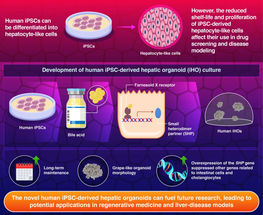Susceptible mouse leads geneticists to link between a gene mutation in DNA's copying process and breast cancer
By discovering a mutant mouse that is highly susceptible to mammary tumors, Cornell researchers have found a novel potential link between genetic defects in DNA replication (copying) and breast cancer. The mouse contains a mutation in a gene essential for replicating DNA in both humans and mice that increases the rate of flawed copies of genetic material, leading to mouse breast cancers.
In a paper published in Nature Genetics online, the Cornell geneticists report that by extensively testing hundreds of mice pedigrees, they found a mutant line of mice called Chaos3 that had a 20-fold increase in a hallmark for cancer called genomic instability -- a blanket term for an elevation in the number of mutations, chromosomal aberrations or loss of integrity of genetic information that occur when DNA replicates. While the Chaos3 mice appear normal in every way, the females are highly predisposed to mammary tumors.
John Schimenti, a genetics professor in Cornell's Departments of Biomedical Sciences, and Molecular Biology and Genetics, and colleagues found that in the Chaos3 mice, the DNA codings in a gene called Mcm4 were partially impaired. The Mcm4 gene is one of six related Mcm genes that play essential roles in replication and were originally discovered at Cornell in baker's yeast (S. cerevisiae). The genes have remained largely unchanged throughout evolution and are evident in archaebacteria, yeast, mammals and more. It is unknown why the impaired Mcm4 genes in the Chaos3 mice led exclusively to breast cancer, Schimenti said. Mcm4 is essential for DNA replication and thus cell growth, according to Schimenti. Partially impaired Mcm4 genes, however, allow Chaos3 mice to live normal lives but greatly increase the rate of faulty DNA replications and genomic instability. The researchers plan to study further the other Mcm genes to see if they, too, play a role in cancers.
Topics
Organizations
Other news from the department science

Get the life science industry in your inbox
By submitting this form you agree that LUMITOS AG will send you the newsletter(s) selected above by email. Your data will not be passed on to third parties. Your data will be stored and processed in accordance with our data protection regulations. LUMITOS may contact you by email for the purpose of advertising or market and opinion surveys. You can revoke your consent at any time without giving reasons to LUMITOS AG, Ernst-Augustin-Str. 2, 12489 Berlin, Germany or by e-mail at revoke@lumitos.com with effect for the future. In addition, each email contains a link to unsubscribe from the corresponding newsletter.






















































